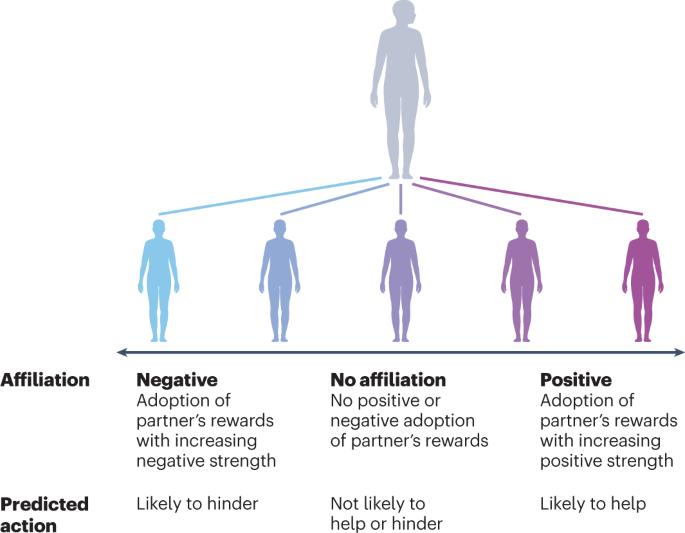Joint reasoning about social affiliation and emotion
IF 16.8
Q1 PSYCHOLOGY, MULTIDISCIPLINARY
引用次数: 1
Abstract
Social relationships powerfully influence human emotions. Understanding how relationships influence emotions enables people to make important social inferences, such as what will delight or upset someone and which people are allies or enemies. In this Perspective, we bring together research that has separately addressed reasoning about emotion and reasoning about affiliation. People expect others’ emotions to reflect their appraisals of a situation relative to what they value. People also expect others to value the welfare of friends, family and group members. This common connection to value can support joint reasoning across these two domains. An intuitive theory representing the connection between affiliation and emotion can enable people to use relationships to better predict others’ emotions, including empathy and counter-empathy, and to infer relationships from observed emotional responses. We also review evidence that human infants can make inferences about emotion and affiliation separately, and we propose future work to explore the development of joint reasoning across these domains. People can reason about the relationships between people and about other people’s emotions. In this Perspective, Smith-Flores and Powell review research in both domains and propose a framework of how people jointly reason about social affiliation and emotion.

关于社会关系和情感的联合推理
社会关系对人的情绪有着强大的影响。了解了人际关系如何影响情绪,人们就能做出重要的社会推断,比如什么会让某人高兴或不高兴,哪些人是盟友或敌人。在本《视角》中,我们汇集了分别针对情感推理和从属关系推理的研究。人们期望他人的情绪能反映出他们对某一情境的评价,并与他们所珍视的东西相对应。人们还期望他人重视朋友、家人和团体成员的福利。这种与价值的共同联系可以支持跨越这两个领域的联合推理。代表从属关系和情感之间联系的直观理论可以使人们利用关系更好地预测他人的情感,包括移情和反移情,并从观察到的情感反应中推断出关系。我们还回顾了人类婴儿可以分别对情感和从属关系进行推理的证据,并提出了探索跨这些领域联合推理发展的未来工作。人们可以推理人与人之间的关系,也可以推理他人的情绪。在本视角中,Smith-Flores 和 Powell 回顾了这两个领域的研究,并提出了一个人们如何共同推理社会从属关系和情感的框架。
本文章由计算机程序翻译,如有差异,请以英文原文为准。
求助全文
约1分钟内获得全文
求助全文

 求助内容:
求助内容: 应助结果提醒方式:
应助结果提醒方式:


